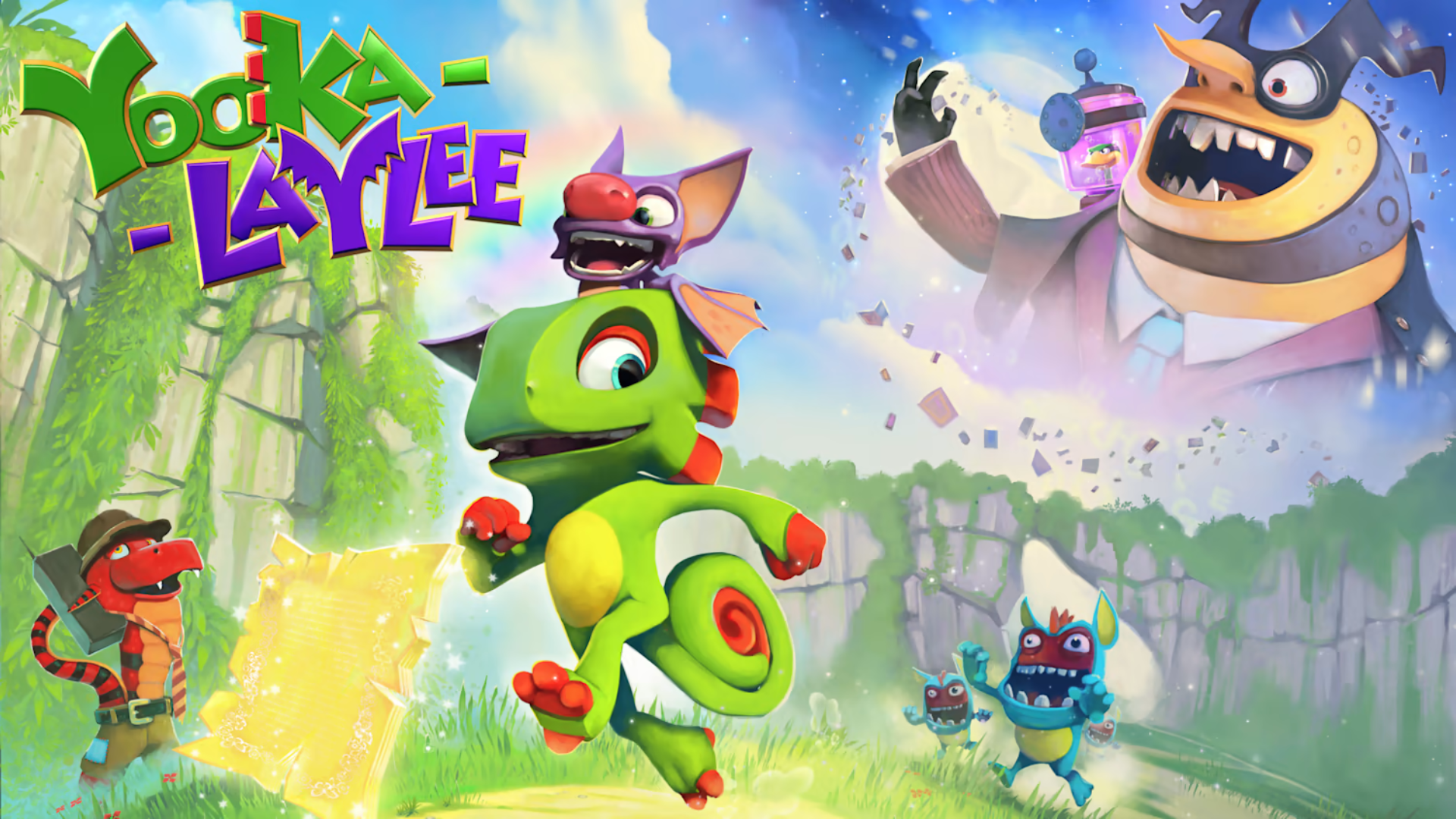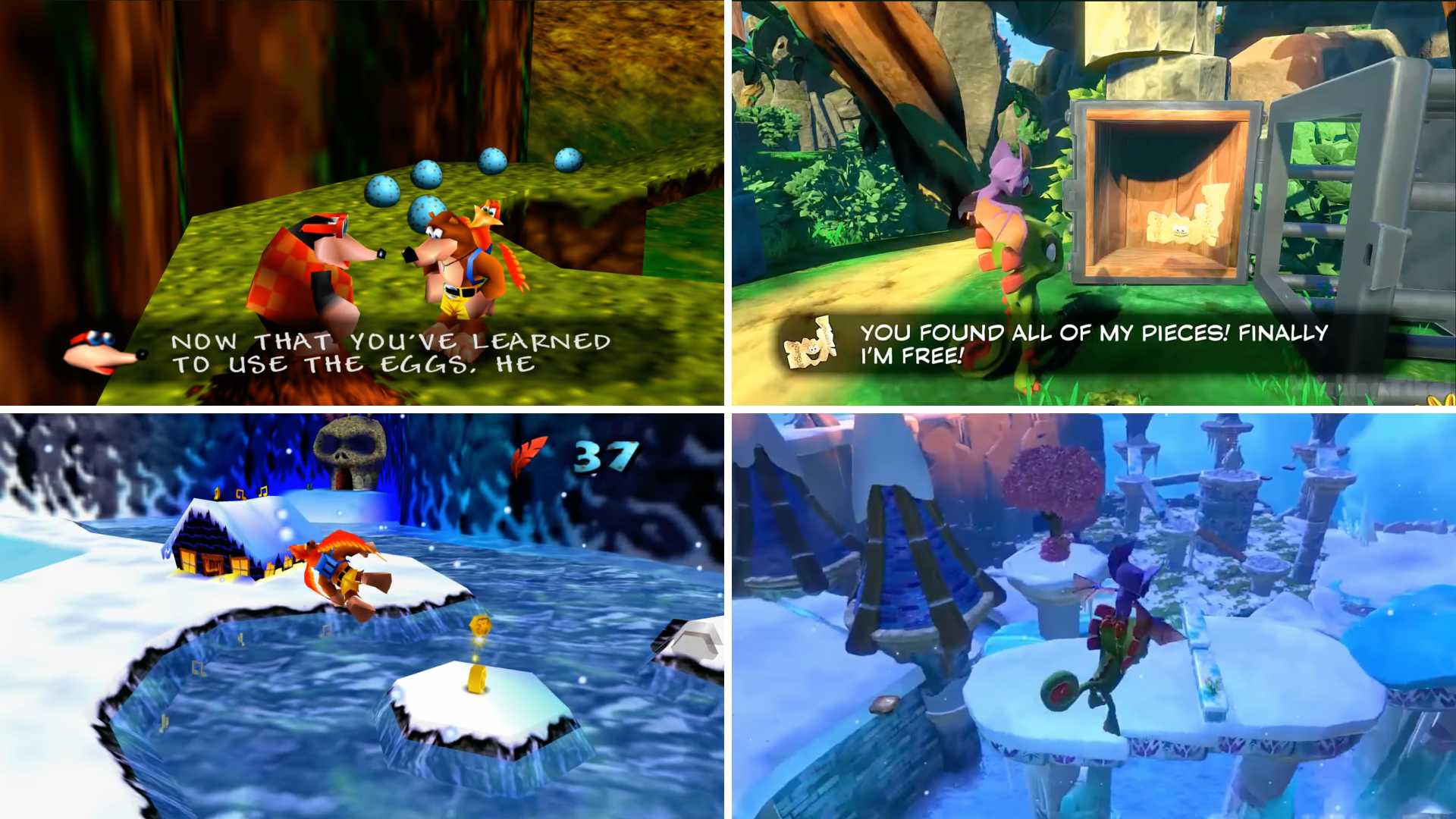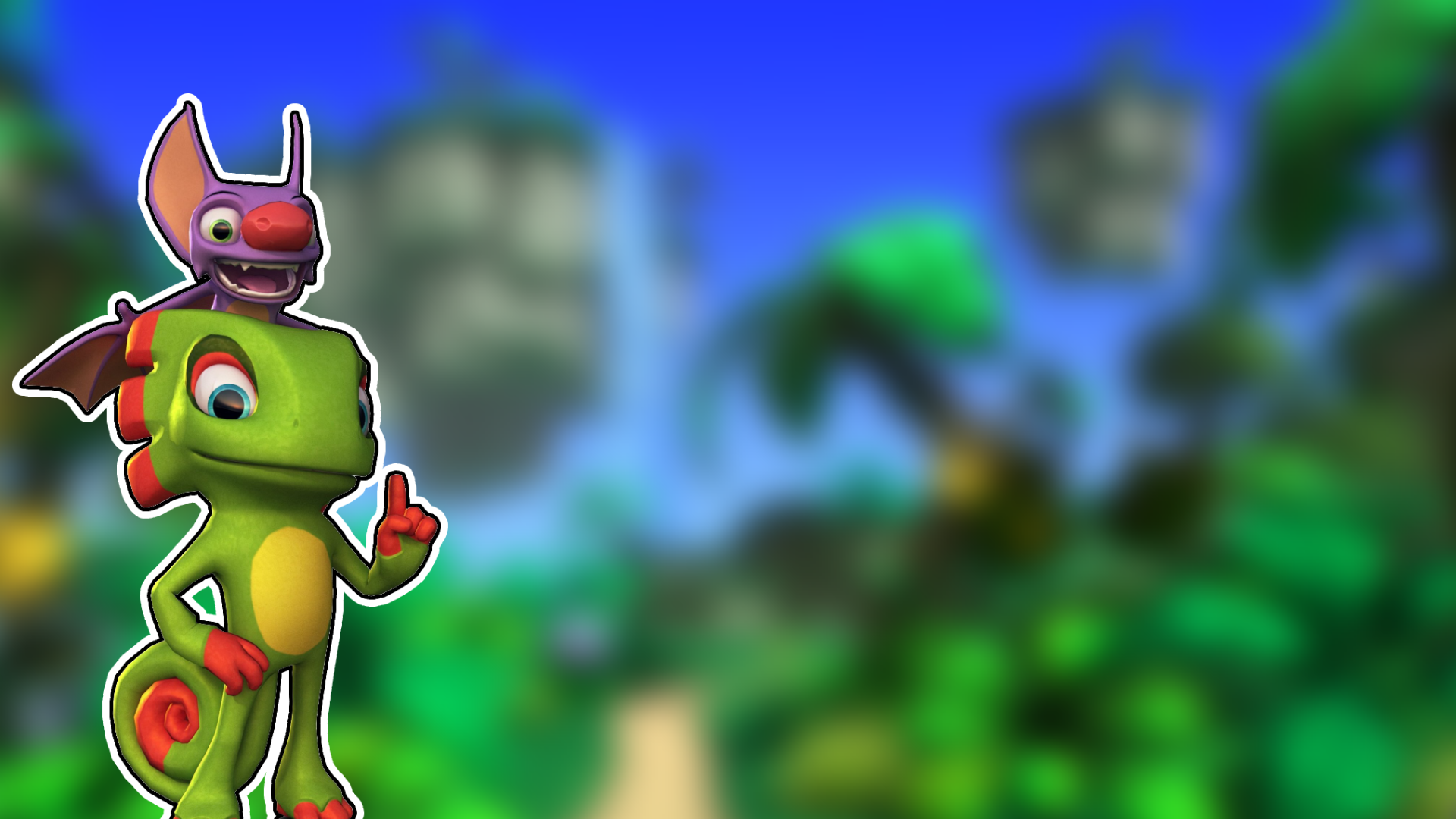"So it’s finally time, all thanks to you – It’s the game revival you helped come true!"

Given its successful crowdfunding campaign on Kickstarter, the prominent members of its development team and the upcoming release of the remaster, Yooka-Laylee's existence as a spiritual successor to the Banjo-Kazooie games is in itself unlikely to surprise anyone who's been following video game headlines throughout the last decade.
What is surprising, however, is the fact that the title even managed to enter and finish development, plus – even stranger – apparently laying the groundwork for a full-on franchise despite its middling reception upon release.
Jumping Into Action
Development of Banjo-Kazooie (1998) first began as Project Dream, a stylistically completely different RPG on SNES, before Rare (by this point a second-party developer for Nintendo) reworked it into a 3D platformer for the Nintendo 64. Drawing from Super Mario 64 and their own Donkey Kong Country, the final game became a colorful 3D platforming adventure starring the bear-and-bird duo Banjo and Kazooie on their quest to collect as many shiny collectibles as possible to defeat the evil witch Gruntilda.
The game was a critical and commercial hit, praised for its unique humor, graphical polish, expansive levels and unique protagonist duo. Its direct sequel, Banjo-Tooie (2000), was larger and more complex, earning strong reviews despite its sometimes obtuse design. Handheld spin-offs followed with mixed results, but the duo remained fan favorites of Rare's golden era.
After Microsoft acquired the company in 2002, hopes for a true sequel dimmed. The 2008 Xbox 360 entry Nuts & Bolts shifted focus to vehicle-building, impressing some but disappointing longtime fans. With Microsoft assigning Rare onto other projects, Banjo-Kazooie – along with the "3D collectathon" subgenre it helped establish – effectively drifted into limbo.
Flocking to Greener Pastures
Frustrated with their new parent company, many Rare developers left the studio in the years following the acquisition. In 2012, some of them would form a loose collective under the Twitter handle "Mingy Jongo", hoping to create a spiritual successor to Banjo-Kazooie. The idea generated fan interest, but the lacking structure of this collaboration led to development of the project ceasing in 2014. However, in 2015, the members of the team finally regrouped under a new studio, Playtonic Games, and announced work on the so-called Project Ukulele.
Early development began with a core group of six people, including several veteran Rare artists and composers. They envisioned a revival of the collectathon platformer, complete with expansive 3D worlds and loads of nostalgic appeal. They designed their own quirky characters – including protagonist duo Yooka and Laylee, while cementing conceptual ties to the most popular titles of Rare's legacy.
To fund development, Playtonic launched a Kickstarter campaign in May 2015, seeking £175,000. The goal was smashed in under 40 minutes, setting records as one of the fastest-funded games in the platform's history. By the campaign's close, over 80,000 backers had pledged a combined £2.1 million, making it the highest-funded UK video game on Kickstarter and ensuring Yooka-Laylee could launch across multiple platforms in 2017.
Rolling Out In Style

The game's 3D collectathon inspirations are immediately apparent: Players control a chameleon-and-bat duo whose shared abilities cover platforming, combat, and puzzle-solving. Progress revolves around collecting "Pagies", which unlock and expand vibrant themed worlds, while the game's humor, charm, and orchestral score proudly carry forward Rare’s classic style.
The adventure pits Yooka and Laylee against Capital B and Dr. Quack, a corporate pair intent on stealing the world's books for profit. With guidance from the magical One Book, the duo explore the various stages (which moreso resemble Banjo-Tooie's in scope) to thwart the villains' plans. The narrative leans on witty dialogue, playful puns, and fourth-wall nods, ensuring it never loses its lighthearted tone.
However, development was far from easy for the small team at Playtonic. Building the title in Unity offered them a bit of flexibility, but also brought technical constraints with it, while balancing fan nostalgia with modern expectations proved tricky. Because of this, though initially warmly anticipated, the final release was met with mixed reviews from both fans and critics upon release.
Turning The Page
Playtonic continued to issue updates afterwards, fixing some of the most noticeable technical and camera issues and eventually even adding new content. Financially, the release seemingly proved successful enough for it to receive a spin-off imitating the gameplay of the Donkey Kong Country games with Yooka-Laylee and the Impossible Lair in 2019.
In 2021, Chinese megacorporation Tencent acquired a minority stake in Playtonic, ensuring funding for the upcoming 2025 remaster Yooka-Replaylee and an as-of-yet untitled sequel. In the meantime, Yooka and Laylee have become somewhat of an indie icon, for example crossing over as playable characters in Brawlout (2018).
As for Banjo-Kazooie, the only recent ray of hope the franchise has seen aside from rereleases was the duo's surprise DLC crossover into Super Smash Bros. Ultimate in 2019. But if the Yooka-Laylee franchise continues to grow, Microsoft may finally realize the potential of collectathon platforming in the current gaming landscape.


































